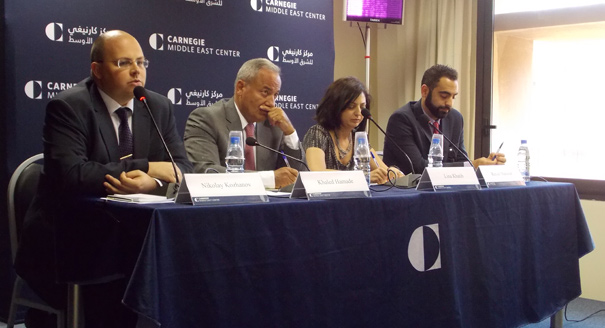Registration
You will receive an email confirming your registration.
Foreign actors are increasingly involved in conflict in the Middle East, whether through local proxies or direct military support. The rise of the self-proclaimed Islamic State in Syria and Iraq has prompted foreign states to rethink their strategies in the region in order to protect their interests. Iran has upped its defense budget by more than 30 percent to manage Iraq’s day-to-day security but still acts in Syria via its proxy Hezbollah. Meanwhile, Russia is reconsidering its support of the Assad regime and appears interested in settling the crisis.
The Carnegie Middle East Center held a panel discussion on the changing role of Iran and Russia in Syria and Iraq and the effect of a potential nuclear deal on regional politics and power dynamics.
Khaled Hamade
Khaled Hamade is managing director at the Regional Forum for Consultancy and Studies.
Lina Khatib
Lina Khatib is director of the Carnegie Middle East Center.
Nikolay Kozhanov
Nikolay Kozhanov is a nonresident scholar at the Carnegie Moscow Center.
Renad Mansour
Renad Mansour is a visiting scholar at the Carnegie Middle East Center.
